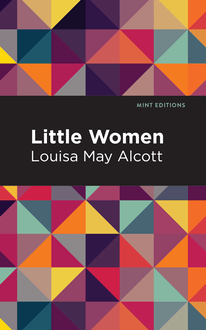-
 Univers
Univers
-
 Ebooks
Ebooks
-
 Livres audio
Livres audio
-
 Presse
Presse
-
 Podcasts
Podcasts
-
 BD
BD
-
 Documents
Documents
-
- Cours
- Révisions
- Ressources pédagogiques
- Sciences de l’éducation
- Manuels scolaires
- Langues
- Travaux de classe
- Annales de BEP
- Etudes supérieures
- Maternelle et primaire
- Fiches de lecture
- Orientation scolaire
- Méthodologie
- Corrigés de devoir
- Annales d’examens et concours
- Annales du bac
- Annales du brevet
- Rapports de stage
La lecture à portée de main
Vous pourrez modifier la taille du texte de cet ouvrage
Découvre YouScribe en t'inscrivant gratuitement
Je m'inscrisDécouvre YouScribe en t'inscrivant gratuitement
Je m'inscrisEn savoir plus
Vous pourrez modifier la taille du texte de cet ouvrage
En savoir plus

Description
Memoirs of Emma Courtney (1796) is a novel by English writer and feminist Mary Hays. Inspired by events from her own life, as well as by her acquaintance with radical political philosophers William Godwin and Mary Wollstonecraft, Hays’s novel received mixed reviews and was controversial for its representation of female sexuality, adultery, infanticide, and suicide. Modern critics and readers, however, have recognized the novel as a groundbreaking work of feminist fiction. In a series of letters to her adopted son Augustus Harley, Emma Courtney reveals the tragic details of her life. Young and in love with Augustus’s father, Courtney dreamed of marrying him and starting a family. Despite their true connection, Harley is unable to marry—his continued income is only guaranteed, he claims, if he remains a bachelor. Meanwhile, a man named Mr. Montague promises Courtney a life of safety and financial stability if she will agree to marry him, which, after learning that Harley has secretly been married all along, she does. Heartbroken, Courtney settles for a life with her new husband, and raising her daughter becomes her only cause for passion. When she realizes the extent of Mr. Montague’s dishonesty, however, she struggles to reconcile her former sense of individuality with the life she has been forced to live. When Harley suddenly reappears, however, feelings from the past return that threaten to flood Courtney’s heart and overturn what stability she thought had been her own. Memoirs of Emma Courtney is an epistolary novel exploring themes of desire, inequality, and the love that transcends the values and bonds of society. With a beautifully designed cover and professionally typeset manuscript, this edition of Mary Hays’s Memoirs of Emma Courtney is a classic of English literature reimagined for modern readers.
Sujets
Informations
| Publié par | Mint Editions |
| Date de parution | 21 mai 2021 |
| Nombre de lectures | 0 |
| EAN13 | 9781513275994 |
| Langue | English |
| Poids de l'ouvrage | 1 Mo |
Informations légales : prix de location à la page 0,0500€. Cette information est donnée uniquement à titre indicatif conformément à la législation en vigueur.
Extrait
Memoirs of Emma Courtney
Mary Hays
Memoirs of Emma Courtney was first published in 1796.
This edition published by Mint Editions 2020.
ISBN 9781513270999 | E-ISBN 9781513275994
Published by Mint Editions®
minteditionbooks.com
Publishing Director: Jennifer Newens
Design & Production: Rachel Lopez Metzger
Project Manager: Micaela Clark
Typesetting: Westchester Publishing Services
C ONTENTS V OLUME I I II III IV V VI VII VIII IX X XI XII XIII XIV XV XVI XVII XVIII XIX XX XXI XXII XXIII XXIV XXV XXVI XXVII XXVIII V OLUME II I II III IV V VI VII VIII IX X XI XII XIII XIV XV XVI XVII XVIII XIX XX XXI XXII XXIII XXIV XXV XXVI XXVII
VOLUME I
To Augustus Harley
R ASH YOUNG MAN !—WHY DO YOU tear from my heart the affecting narrative, which I had hoped no cruel necessity would ever have forced me to review?—Why do you oblige me to recall the bitterness of my past life, and to renew images, the remembrance of which, even at this distant period, harrows up my soul with inconceivable misery?—But your happiness is at stake, and every selfish consideration vanishes.—Dear and sacred deposit of an adored and lost friend!—for whose sake I have consented to hold down, with struggling, suffocating reluctance, the loathed and bitter portion of existence;—shall I expose your ardent mind to the incessant conflict between truth and error—shall I practise the disingenuousness, by which my peace has been blasted—shall I suffer you to run the wild career of passion—shall I keep back the recital, written upon my own mind in characters of blood, which may preserve the child of my affections from destruction?
Ah! why have you deceived me?—Has a six months’ absence obliterated from your remembrance the precept I so earnestly and incessantly laboured to inculcate—the value and importance of unequivocal sincerity? A precept, which I now take shame to myself for not having more implicitly observed! Had I supposed your affection for Joanna more than a boyish partiality; had I not believed that a few months’ absence would entirely erase it from your remembrance; had I not been assured that her heart was devoted to another object, a circumstance of which she had herself frankly informed you; I should not now have distrusted your fortitude, when obliged to wound your feelings with the intelligence—that the woman, whom you have so wildly persecuted, was, yesterday, united to another.
To the Same
I RESUME MY PEN. Y OUR letter, which Joanna a few days since put into my hands, has cost me—Ah! my Augustus, my friend, my son—what has it not cost me, and what impressions has it not renewed? I perceive the vigour of your mind with terror and exultation. But you are mistaken! Were it not for the insuperable barrier that separates you, for ever, from your hopes, perseverance itself, however active, however incessant, may fail in attaining its object. Your ardent reasoning, my interesting and philosophic young friend, though not unconsequential, is a finely proportioned structure, resting on an airy foundation. The science of morals is not incapable of demonstration, but we want a more extensive knowledge of particular facts, on which, in any given circumstance, firmly to establish our data.—Yet, be not discouraged; exercise your understanding, think freely, investigate every opinion, disdain the rust of antiquity, raise systems, invent hypotheses, and, by the absurdities they involve, seize on the clue of truth. Rouse the nobler energies of your mind; be not the slave of your passions, neither dream of eradicating them. Sensation generates interest, interest passion, passion forces attention, attention supplies the powers, and affords the means of attaining its end: in proportion to the degree of interest, will be that of attention and power. Thus are talents produced. Every man is born with sensation, with the aptitude of receiving impressions; the force of those impressions depends on a thousand circumstances, over which he has little power; these circumstances form the mind, and determine the future character. We are all the creatures of education; but in that education, what we call chance, or accident, has so great a share, that the wisest preceptor, after all his cares, has reason to tremble: one strong affection, one ardent incitement, will turn, in an instant, the whole current of our thoughts, and introduce a new train of ideas and associations.
You may perceive that I admit the general truths of your reasoning; but I would warn you to be careful in their particular application; a long train of patient and laborious experiments must precede our deductions and conclusions. The science of mind is not less demonstrative, and far more important, than the science of Newton; but we must proceed on similar principles. The term metaphysics has been, perhaps, justly defined—the first principles of arts and sciences . 1 Every discovery of genius, resulting from a fortunate combination of circumstances, may be resolved into simple facts; but in this investigation we must be patient, attentive, indefatigable; we must be content to arrive at truth through many painful mistakes and consequent sufferings.—Such appears to be the constitution of man!
To shorten and meliorate your way, I have determined to sacrifice every inferior consideration. I have studied your character: I perceive, with joy, that its errors are the ardent excesses of a generous mind. I loved your father with a fatal and unutterable tenderness: time has softened the remembrance of his faults.—Our noblest qualities, without incessant watchfulness, are liable insensibly to shade into vices—but his virtues and misfortunes , in which my own were so intimately blended, are indelibly engraven on my heart.
A mystery has hitherto hung over your birth. The victim of my own ardent passions, and the errors of one whose memory will ever be dear to me, I prepare to withdraw the veil—a veil, spread by an importunate, but, I fear, a mistaken tenderness. Learn, then, from the incidents of my life, entangled with those of his to whom you owe your existence, a more striking and affecting lesson than abstract philosophy can ever afford.
1 . Helvetius.
I
T he events of my life have been few, and have in them nothing very uncommon, but the effects which they have produced on my mind; yet, that mind they have helped to form, and this in the eye of philosophy, or affection, may render them not wholly uninteresting. While I trace them, they convince me of the irresistible power of circumstances, modifying and controuling our characters, and introducing, mechanically, those associations and habits which make us what we are; for without outward impressions we should be nothing.
I know not how far to go back, nor where to begin; for in many cases, it may be in all, a foundation is laid for the operations of our minds, years—nay, ages—previous to our birth. I wish to be brief, yet to omit no one connecting link in the chain of causes, however minute, that I conceive had any important consequences in the formation of my mind, or that may, probably, be useful to your’s.
My father was a man of some talents, and of a superior rank in life, but dissipated, extravagant, and profligate. My mother, the daughter of a rich trader, and the sole heiress of his fortunes, allured by the specious address and fashionable manners of my father, sacrificed to empty shew the prospect of rational and dignified happiness. My father courted her hand to make himself master of her ample possessions: dazzled by vanity, and misled by self-love, she married him;—found, when too late, her error; bitterly repented, and died in child bed the twelfth month of her marriage, after having given birth to a daughter, and commended it, with her dying breath, to the care of a sister (the daughter of her mother by a former marriage), an amiable, sensible, and worthy woman, who had, a few days before, lost a lovely and promising infant at the breast, and received the little Emma as a gift from heaven, to supply its place.
My father, plunged in expence and debauchery, was little moved by these domestic distresses. He held the infant a moment in his arms, kissed it, and willingly consigned it to the guardianship of its maternal aunt.
It will here be necessary to give a sketch of the character, situation, and family, of this excellent woman; each of which had an important share in forming the mind of her charge to those dispositions, and feelings, which irresistibly led to the subsequent events.
II
M r. and Mrs. Melmoth, my uncle and aunt, married young, purely from motives of affection. Mr. Melmoth had an active, ardent mind, great benevolence of heart, a sweet and chearful temper, and a liberal manner of thinking, though with few advantages of education: he possessed, also, a sanguine disposition, a warm heart, a generous spirit, and an integrity which was never called in question. Mrs. Melmoth’s frame was delicate and fragile; she had great sensibility, quickness of perception, some anxiety of temper, and a refined and romantic manner of thinking, acquired from the perusal of the old romances, a large quantity of which, belonging to a relation, had, in the early periods of her youth, been accidentally deposited in a spare room in her father’s house. These qualities were mingled with a devotional spirit, a little bordering on fanatacism. My uncle did not exactly resemble an Orlando, or an Oroondates, but he was fond of reading; and having the command of a ship in the West India trade, had, during his voyages in fine weather, time to indulge in this propensity; by which means he was a tolerable proficient in the belles lettres, and could, on occasion, quote Shakespeare, scribble poetry, and even philosophize with Pope and Bolingbroke.
Mr. Melmoth was one-and-twenty, his bride nineteen, when they were united. They possessed little property; but the one was enterprizing and industrious, the other careful and
-
 Univers
Univers
-
 Ebooks
Ebooks
-
 Livres audio
Livres audio
-
 Presse
Presse
-
 Podcasts
Podcasts
-
 BD
BD
-
 Documents
Documents
-
Jeunesse
-
Littérature
-
Ressources professionnelles
-
Santé et bien-être
-
Savoirs
-
Education
-
Loisirs et hobbies
-
Art, musique et cinéma
-
Actualité et débat de société
-
Jeunesse
-
Littérature
-
Ressources professionnelles
-
Santé et bien-être
-
Savoirs
-
Education
-
Loisirs et hobbies
-
Art, musique et cinéma
-
Actualité et débat de société
-
Actualités
-
Lifestyle
-
Presse jeunesse
-
Presse professionnelle
-
Pratique
-
Presse sportive
-
Presse internationale
-
Culture & Médias
-
Action et Aventures
-
Science-fiction et Fantasy
-
Société
-
Jeunesse
-
Littérature
-
Ressources professionnelles
-
Santé et bien-être
-
Savoirs
-
Education
-
Loisirs et hobbies
-
Art, musique et cinéma
-
Actualité et débat de société
- Cours
- Révisions
- Ressources pédagogiques
- Sciences de l’éducation
- Manuels scolaires
- Langues
- Travaux de classe
- Annales de BEP
- Etudes supérieures
- Maternelle et primaire
- Fiches de lecture
- Orientation scolaire
- Méthodologie
- Corrigés de devoir
- Annales d’examens et concours
- Annales du bac
- Annales du brevet
- Rapports de stage













